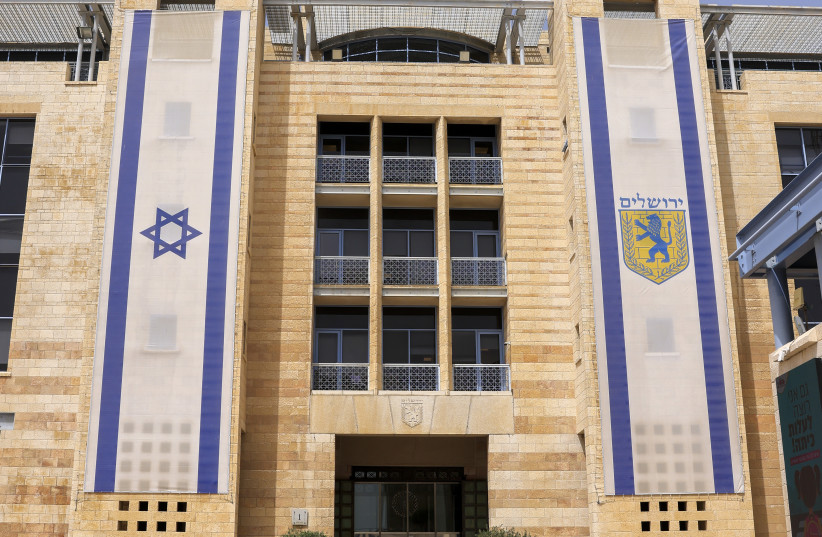
Noticeable just four weeks prior to election day, February 27, is the absence of the election fever that has characterized previous campaigns.
There are several reasons for this – the war of course, but not that alone.
Jerusalemites are well aware of the importance of these elections, but passion is missing among candidates and their supporters. This is possibly because too many candidates have lost confidence in being able to bring about serious change and improvement in the issues that concern Jerusalemites: education, affordable housing, security, job opportunities, and above all, the ongoing population drain as the younger generation moves out of the city.
And yet, something is beginning to stir. A few meetings are being held among supporters, a visual campaign is starting to flood the streets of the city, a certain awakening is taking place.
Drumming up election campaign support in Jerusalem
In this rather gloomy atmosphere, the Jerusalem Union list seems to be the only one that might be able to stir up the election campaign. On Monday evening, they received good news when the Supreme Court ruled that the Har Homa’s council swimming pool will be opening on Shabbat and holidays as requested by the head of the list, attorney Yossi Havilio. This decision is not just another victory of the list running for the council – it points to the most sensitive issue in the election process in the city, and by implication, the continuation of normal life in the capital.

The Har Homa neighborhood is representative of the composition of Jewish Jerusalem society: one-third ultra-Orthodox, one-third religious, and one-third secular. However, for the elections for the community administration in the neighborhood, mainly ultra-Orthodox and National Religious people showed up. The secular and traditional stayed at home or went for a walk.
Havilio’s campaign and the Jerusalem Union list he heads are trying to shake up this situation.
Meanwhile, the Jerusalem Union’s greatest achievement is the actual establishment of the list. There are a number of reasons for the decision, but the result is clear. The Jerusalem Democratic list, headed by Laura Wharton; Labor representative Eran Ben Yehuda; and Yesh Atid representative Ya’ala Bitton de Langa, who were subsequently joined by representatives of the student protest, voted to balance the representation on the city council by uniting several lists and eliminating others with no chance of getting on to the council. However, among the National Religious public (a well-represented sector in the city’s composition), the phenomenon of division is far from decreasing. For the election day finale, four lists will show up to represent it.
Another achievement in this election campaign is credited to Deputy Mayor Arieh King, who, being a reservist, was recruited from the very first days of the war. He protested against the government’s decision to hold the elections before the majority of reservists returned home. Havilio also shared this view, although he was not called up.
There are approximately 700,000 voters in Jerusalem, and about 200,000 of them are ultra-Orthodox.
This figure of 700,00 includes residents of eastern Jerusalem who are entitled to vote for the municipality but traditionally boycott the elections, even though this time there is also a list vying to represent the east city’s residents; but so far, most of their supporters are Jewish. Added to that, voting rates among the ultra-Orthodox are higher than in the general population.
Another reason for the ultra-Orthodox advantage on the council is the history of multiple parties. In the previous elections, 18 lists ran. Ten of them did not reach the threshold, throwing away almost 30,000 votes, equal to three seats on the council. ■
